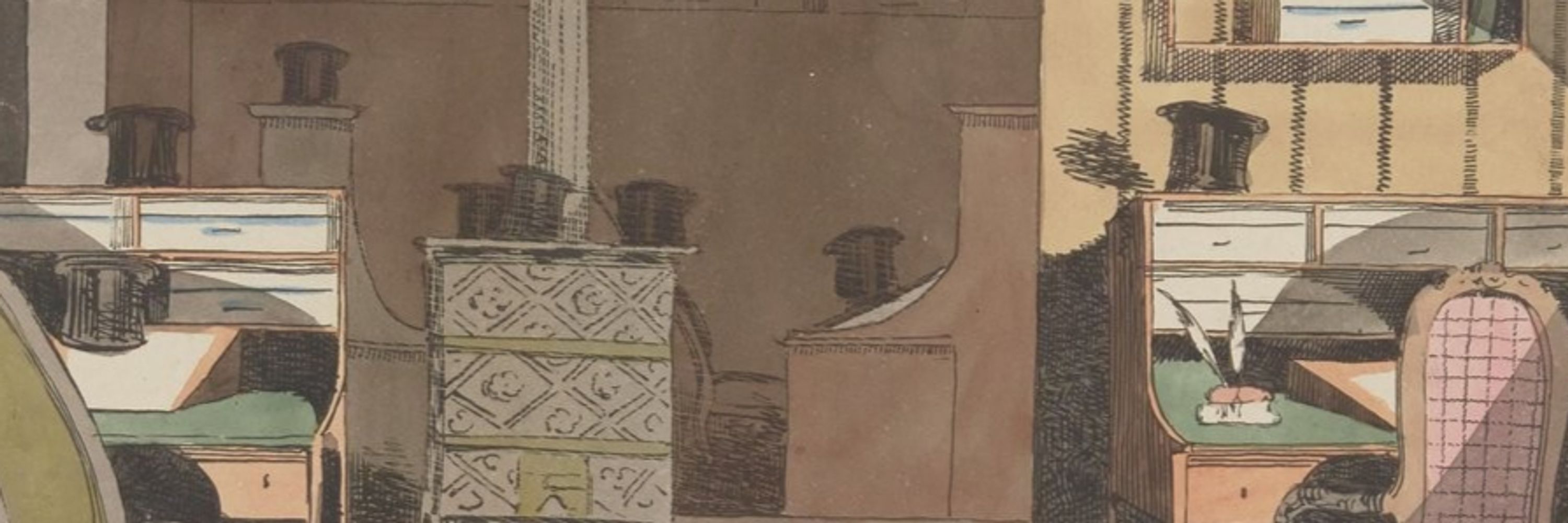
Il faut, comme disait Balzac, offrir une surface commerciale.
Please get in touch if you have any others. Thanks.


Please get in touch if you have any others. Thanks.
Thanks again to @alexandrairim.bsky.social and her colleagues for an excellent conference!



Thanks again to @alexandrairim.bsky.social and her colleagues for an excellent conference!


- This verbal and 'ketchup-al' explosion from Alice's colleague, Flo, creates solidarity between the three waitresses,
- And the sauce becomes a proxy for menstruation, complementing this moment of female expression in patriarchal workplace.



- This verbal and 'ketchup-al' explosion from Alice's colleague, Flo, creates solidarity between the three waitresses,
- And the sauce becomes a proxy for menstruation, complementing this moment of female expression in patriarchal workplace.

- Sauce-soaked steak evokes the sanguine-corporeality of boxing, but it also expresses Tully's removal from this masculine world (he cooks the meal too - horror of horrors).


- Sauce-soaked steak evokes the sanguine-corporeality of boxing, but it also expresses Tully's removal from this masculine world (he cooks the meal too - horror of horrors).

- But the stain is also a pseudo-wound for this hyperreal image of Americana - 'they got me, Zeke!'
- And, considering his failed career, this crotch stain becomes a humiliating early climax.



- But the stain is also a pseudo-wound for this hyperreal image of Americana - 'they got me, Zeke!'
- And, considering his failed career, this crotch stain becomes a humiliating early climax.
John Voight's Joe Buck embodies many contradictions: the wholesome image of American fantasy, he is also an impoverished and unsuccessful 'hustler'; a happy-go-lucky naif, he is also deeply traumatized. These are expressed in his ketchup spillage:

John Voight's Joe Buck embodies many contradictions: the wholesome image of American fantasy, he is also an impoverished and unsuccessful 'hustler'; a happy-go-lucky naif, he is also deeply traumatized. These are expressed in his ketchup spillage:
Back to Flaubert's Bouvard and Pécuchet, and their very sweet, custom-made, 'love-desk' (here envisaged by artist, Gareth Long): garethlong.net/bouvardAndPe...

Back to Flaubert's Bouvard and Pécuchet, and their very sweet, custom-made, 'love-desk' (here envisaged by artist, Gareth Long): garethlong.net/bouvardAndPe...
Time for another saucy trip to the Birmingham Pen Museum!

Time for another saucy trip to the Birmingham Pen Museum!



In the office, objects appear to have powers of their own ('bureaucracy' itself can be translated as 'rule-by-the-desk'), a theme that recurs in its literary portrayal:

In the office, objects appear to have powers of their own ('bureaucracy' itself can be translated as 'rule-by-the-desk'), a theme that recurs in its literary portrayal:
Thanks to the team at @bloomsburyacad.bsky.social for all their hard work!
Here it is in its natural element:

Thanks to the team at @bloomsburyacad.bsky.social for all their hard work!
Here it is in its natural element:
Love the ink stains on the lens - although slightly weirded out by the 'Far Side'-style glasses.


Love the ink stains on the lens - although slightly weirded out by the 'Far Side'-style glasses.
An extended sequence in which the old dotard, Poiret, discovers that his hat is full of lard, but he is forever incapable of divining that his colleagues put it there.

An extended sequence in which the old dotard, Poiret, discovers that his hat is full of lard, but he is forever incapable of divining that his colleagues put it there.
Charles Pooter, struck by a paper ball, tells us in 'The Diary of a Nobody' (1892) that, 'I am not a rich man, but would give half-a-sovereign to know whether that was thrown by accident or design'.

Charles Pooter, struck by a paper ball, tells us in 'The Diary of a Nobody' (1892) that, 'I am not a rich man, but would give half-a-sovereign to know whether that was thrown by accident or design'.
A derogatory song about the boss is mechanically copied by a braindead scribe who loses his job when it reaches management.

A derogatory song about the boss is mechanically copied by a braindead scribe who loses his job when it reaches management.
Simply bring two hats to work. Leave one at your desk to give your boss the impression that you have briefly stepped out of the office, then (wearing the other, naturally) go AWOL.

Simply bring two hats to work. Leave one at your desk to give your boss the impression that you have briefly stepped out of the office, then (wearing the other, naturally) go AWOL.
Jokes here are simply the 'yang' to desk work's 'yin.'

Jokes here are simply the 'yang' to desk work's 'yin.'
Pranks and jokes are a timeworn office tradition - but what are their philosophical underpinnings? Let's peel back the jelly from the stapler and journey to their dark heart...

Pranks and jokes are a timeworn office tradition - but what are their philosophical underpinnings? Let's peel back the jelly from the stapler and journey to their dark heart...




